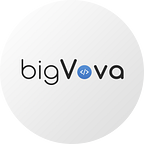From Zero to Developer: Your Guide to the First Steps in Programming
Starting a career in programming might seem daunting, but with the right approach, you can quickly go from a novice to a professional developer. Learn how to take the first steps.
Where to Start: Choosing a Programming Language
The first step on the path to a developer career is choosing a programming language. But how do you choose when there are so many? Here are a few criteria that can help you make a decision:
- Goals and Interests: If you’re interested in web development, consider JavaScript. For Android mobile app development, Kotlin or Java would be suitable, and for iOS — Swift. Python is excellent for beginners due to its readability and wide application from web development to machine learning.
- Community and Resources: Some languages have more active communities and more learning materials. This can significantly ease the learning process.
- Career Prospects: Research the job market. Some programming languages may offer more opportunities in your region or in the industry you’re interested in.
The Foundations upon Which the World of Programming Is Built
After choosing a programming language, it’s important to understand the basics upon which all programming is built. These include:
- Variables and Data Types
- Conditional Statements
- Loops
- Functions
- Object-Oriented Programming
Learning these concepts will give you the ability to understand how programs are constructed and teach you how to solve problems with code.
Practice, Practice, and More Practice
To master programming, the key is to move from theoretical knowledge to practical application. Here are several ways to make your practice more productive:
- Daily Programming: Allocate time each day for practice, even if it’s just 30 minutes. This will help develop a habit and improve coding skills. Create a routine that makes programming a part of your daily life.
- Participating in Code Challenges: Projects like 30 Days of Code by HackerRank or #100DaysOfCode on Twitter can be great motivation. They help not only in learning but also in building a network with other learners.
- Working on Real Projects: Start with simple projects, such as creating a calculator, blog, or a simple game. As your skills grow, move on to more complex projects. Working on projects that personally interest you will increase your motivation.
- Contributing to Open Source: Participating in open-source software development can be a great way to learn to work in a team, understand workflows, and even attract the attention of potential employers.
- Continuous Learning and Adaptation: Technologies are constantly evolving, and it’s important to stay updated with the latest trends in the programming world. Subscribe to technical blogs, read books, attend conferences, and webinars.
Learning Resources
To deepen your knowledge and skills in programming, it’s important to use a variety of learning resources. Here are a few that will help you in this:
- Interactive Platforms: In addition to Coursera, Udemy, and Codecademy, try FreeCodeCamp and edX, which offer free programming courses with practical assignments.
- Official Documentation and Guides: Don’t overlook official documentations, such as MDN Web Docs for web developers or Swift Documentation for iOS developers. They often contain the most current and accurate information.
- Video Tutorials: YouTube channels such as Traversy Media, FreeCodeCamp, and The Net Ninja offer thousands of hours of free video tutorials on various topics and programming languages.
- Forums and Learning Communities: GitHub is not only for contributing to projects but also for learning from other developers’ code. Stack Overflow and Reddit can help find answers to your questions and provide opportunities to help others.
- Podcasts and Blogs: Podcasts like Syntax.fm and ShopTalk, as well as technical blogs like Smashing Magazine and CSS-Tricks, offer in-depth knowledge about the latest trends, best practices, and new technologies.
These practical tips and resources should help you not only to learn the basics of programming but also to continue evolving as a developer. Transitioning from a beginner to a developer is a marathon, not a sprint. Be patient and consistent in your learning. Remember, every successful developer started from the basics. Take advantage of opportunities to practice, don’t be afraid to ask questions and interact with like-minded individuals. Your dedication to learning and diligence will lead you to success in the world of programming.
